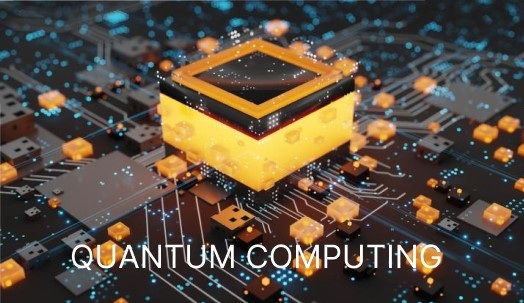FAQ: Maryland's Role in the Quantum Computing Boom

Summary
What is the projected growth of the quantum computing market?
The quantum computing market is expected to surge from roughly $3.5 billion in 2025 to over $20 billion by 2030, reflecting a remarkable 41.8% compound annual growth rate according to MarketsandMarkets.
Why is Maryland positioned to benefit from the quantum computing boom?
Maryland benefits from Microsoft’s collaboration at the University of Maryland’s Quantum Research Center, the presence of IonQ headquarters in College Park, and involvement in Darpa’s US2QC program examining non-conventional methods for building fault-tolerant quantum computers.
Who are the key players in Maryland’s quantum computing ecosystem?
Key players include Microsoft collaborating with University of Maryland’s Quantum Research Center, IonQ (a College Park-headquartered company), Amazon through its Quantum Embark program and AWS quantum division, and Darpa’s US2QC program.
What is IonQ and what makes it significant?
IonQ is a pure-play quantum hardware firm founded in 2015 by Chris Monroe of University of Maryland and Jungsang Kim of Duke University, backed by investors including NEA, GV, AWS, Samsung, and Mubadala, and has completed an IPO in 2021 with recent significant funding rounds.
What sectors are driving demand for quantum computing?
Key sectors driving demand include chemicals, life sciences, finance, and mobility, where quantum-powered optimization, simulation, and machine learning are anticipated to deliver transformative breakthroughs.
What government programs and contracts support quantum computing development?
Government involvement includes Darpa’s US2QC program, Department of Energy collaborations on space-based quantum networks, Darpa’s Quantum Benchmarking Initiative, and contracts with U.S. Air Force Research Laboratory and Applied Research Laboratory for Intelligence and Security.
What technological innovations are mentioned in quantum computing?
Amazon’s AWS quantum division introduced its proprietary Ocelot chip with ‘cat qubits’ technology that enhances error correction while potentially slashing costs by 90%, and IonQ has built two quantum computers using technology licensed from university research.
What international quantum initiatives involve Maryland companies?
IonQ’s technologies have been deployed at national quantum-safe networks projects in Singapore and South Korea, and the company has international initiatives within the European Union’s quantum communications infrastructure.
How does the broader quantum technology market compare to quantum computing specifically?
While quantum computing alone is projected to reach $20 billion by 2030, McKinsey’s analysis envisions the broader quantum technology market could reach $100 billion by 2035, with quantum computing generating revenues between $28 billion and $72 billion.

This story is based on an article that was registered on the blockchain. The original source content used for this article is located at citybiz
Article Control ID: 256308